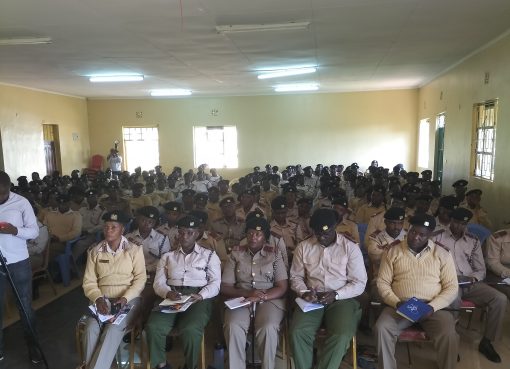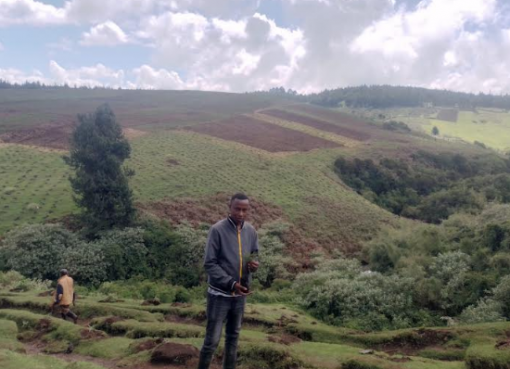The government is working towards increasing potato production by ensuring it is grown even in Arid and Semi-Arid areas like Marsabit and Wajir through irrigation.
State Department of Crop Development Principal Secretary (PS) Kello Harsama said that with potato being the second most consumed food in the country, as the government they are looking at ways of increasing production so that it can replace maize which is the number one consumed food.
Speaking at Kilimo house, the PS said that the youth have driven the demand for potato to all-time highs where chips is in high demand in colleges, universities, urban centers and homes and they want to increase production to meet this demand.
“With the governments’ drive to construct dams across the country in high gear, we want to capitalize on the availability of the water to introduce irrigated potato farming in the Arid and Semi-Arid areas where the people are predominantly pastoralist and introduce them to potato farming since it is a fast maturing crop,” said Harsama.
The PS said that they are also going to enforce laws and regulations in the potato sector, especially the ones touching on the packaging where farmers are exploited by middle men.
“When I was the Director General at the Agriculture and Food Authority (AFA), I enforced the regulations that potatoes must be packaged in 50 kilograms bags,” said Harsama adding these regulations must be enforced in all potato producing areas by the national government in collaboration with the respective county governments and security teams.
Harsama explained that they have instituted changes in efforts to streamline the operations at the relevant government agencies where there is a new Director General and a new director for food crops at AFA.
“These changes are geared towards streamlining efficiencies and to ensure that regulations guiding various food sectors are fully enforced,” said Harsama revealing they will be visiting markets in Nairobi and other major towns to ensure that business people selling potatoes are following the law and using the right packaging of 50 kilogram bags.
“There are very heavy fines associated with breaking these laws, those who break them risk imprisonment of up to one year, up to Sh.500,000 fine or even a possibility of both a fine and imprisonment,” warned the PS.
National Potato Council of Kenya (NPCK) chairman John Nderitu said that they have achieved a lot in the sector and right now there are over 60 potato varieties in Kenya.
He explained that records indicate that an average Kenya consumes around 30 kilograms of potato per year which is high but maize is higher at three times this quantity.
Nderitu said that potato is key in addressing climate change and food insecurity since it is a fast maturing crop with an average maturity period of three months. “We have moved potato farming to Arid and Semi-Arid areas like Taita-Taveta and Mombasa among others where we have put in a lot of effort in the last couple of years to increase the acreage under potato in the country,” said Nderitu.
He added that they are also introducing drought and heat tolerant varieties which has seen the number of counties which plant potato increase from the traditional thirteen.
“Younger people are enjoying potato and its wide range of products like chips and crisps with many international companies setting up shop in the country as they target to bring other products that older people have not been previously eating,” said Nderitu.
According to Nderitu, there are a lot of companies from Europe including Ireland Germany, and Netherlands that have come to Kenya as seed producers.
He said that the government has provided land for potato seeds production since it requires huge tracts of land for crop rotation.
NPCK CEO Wachira Kaguongo said that the World Potato Congress to be held in Kenya in 2026 will be a game changer in the country’s potato sector where they will gain from the many technologies and innovations on offer by their international partners.
“The use of potato in Kenya is quite limited and there are other products which are not produced here like starch, flour, dehydrated cubes and alcohol which can all be produced with the right kind of technology thus earning our farmers better income,” said Kaguongo.
He explained that potato production in Kenya is below 10 tonnes per hectare while other countries are producing 40 tonnes per hectare and there is need to bring those technologies to the country.
He added they are working with counties, processors and regulators like AFA to introduce tractability which is one of the key issues that buyers like KFC want so that farmers can access that type of market.
By Joseph Ng’ang’a





